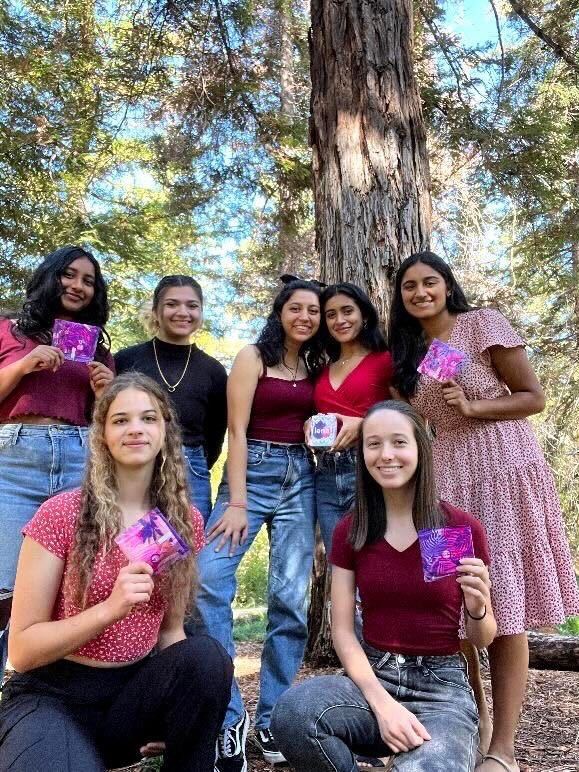Students say more resources are needed to provide adequate menstrual support at UC Davis
By MARIA MARTINEZ CASTRO — features@theaggie.org
With the passing of the Menstrual Equity Act in 2021 and the creation of the Menstrual Equity Task Force, UC Davis students have had increased access to free menstrual products over the past few years.
The progress in period equity largely comes from the efforts of students and student groups on campus, such as Davis Period, The Pantry and ASUCD Senate.
While students and student groups have made progress to address period inequities at UC Davis, period poverty still manifests on campus and into students’ homes and communities.
Gabby Tirsell, a fourth-year economics major and co-founder and acting CEO of U-Cycle, said that seeing the lack of free menstrual products for students on campus led her and her business team to establish their company.
“U-Cycle started as an effort to get more period supplies to students who need them at UC Davis,” Tirsell said. “It always felt like we were in some sort of period supplies deficit, which is a major problem, especially for students who need it. If you look around campus, we have these free distribution bins that are constantly empty and unlocatable.”
Tirsell’s company focuses on delivering a custom box of period supplies to subscribers, while a portion of the proceeds is used to donate period supplies to UC Davis students.
Eli Singh, a third-year neurology, physiology and behavior major and the public relations and social media director for Davis Period, said that period poverty is seen on campus through the high demand for period supplies.
“The student population also experiences period poverty on some level because if there was no period poverty within the student population, The Pantry wouldn’t offer products,” Singh said. “There is a need. We did a survey […] there was a portion of the population on campus who don’t know for sure if they were going to be able to afford products for their next cycle.”
Among other resource inequities, access to menstrual products is often not deemed a necessity or even considered, Singh said.
“I think it’s probably easier to ignore than other types of poverty because it’s a hidden thing,” Singh said. “I feel like people are more likely to talk about having trouble budgeting or with groceries — things that seem super essential — even though period products are essential.”
Tirsell said that student groups on campus providing free period supplies are doing their best to support menstruators despite the limited access to funds and supplies.
“The student legislators at Davis are doing the best that they can with the resources provided […]The demand outweighs the supply, like a bazillion times over. Everybody wants these things that aren’t always the most affordable or accessible.”
According to Samantha Tsui and Kian Bidari, The Pantry advocacy managers, ASUCD Senate Bill #77 allocated $3767.52 from senate reserves to The Pantry for menstrual products in May 2022 and Senate Bill #59 allocated $4,586.86 in February, but The Pantry also relies on individual donations to keep up supply, especially since funds run out quickly.
Singh said that, while students want to see a wider distribution of period resources on campus, period poverty needs to be addressed one step at a time.
“This year, we’re trying to see if the budget that was previously allocated for the Menstrual Equity Task Force is enough to keep the products stocked in the places where there already are dispensers,” Singh said. “I know that a lot of people are pushing for more dispensers […] But right now, it’s better to have dispensers that are stocked than have dispensers everywhere, but none of them have anything.”
Pravani Manchikanti, a third-year neurology, physiology and behavior major and the operation and donations director at Davis Period, said that when more resources are allocated to student centers, it is also beneficial for the surrounding community. Organizations such as Davis Period can also address period poverty outside of campus.
As period equity continues to grow, student centers and groups like Davis Period, The Pantry and U-Cycle will continue to support menstruators.
“Students providing for other students — we just build a stronger community that way,” Singh said.
Written by: Maria Martinez Castro — features@theaggie.org
Correction: A previous version of this article included wrong about the resources The Pantry has available. It has been updated accordingly.




